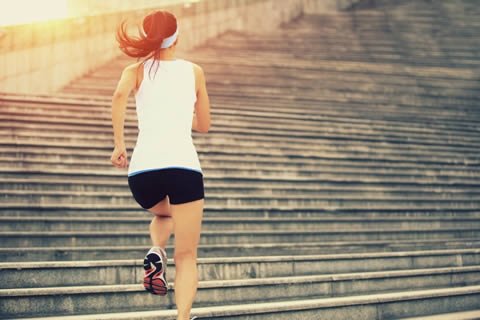Worried About Exercise and Urinary Incontinence?
Don’t let your New Year’s workout make you leaky!
With new year’s resolutions, a lot of us will be starting new workout routines to shape up. While exercise is a cornerstone of physical health, a little talked about side effect of increased athletic training, particularly for those with female anatomy, is urinary incontinence. A comprehensive literature review published March 2018 in International Urogynecology Journal found that female athletes have an increased the risk for urinary incontinence.
What exercises cause more leakage?
In general, higher impact sports such as basketball, volleyball, and tennis have a higher prevalence of urinary incontinence vs. lower impact sports such as swimming and pilates (de Mattos Lourenco, et al., 2018).
The following list outlines more:
High impact activities- 58% Prevalence of UI:
- Basketball
- Football
- Gymnastics
- Tennis
Medium impact activities- 30.46% Prevalence of UI:
- Hockey
- Judo
- Running
- Softball
Low impact activities- 12.64% Prevalence of UI:
- Bodybuilding
- Cycling
- Hiking
- Pilates
- Swimming
Why would exercise make you leak?
One leading hypothesis for this is an increase in abdominal pressure. As we’ve talked before in our blog series about pelvic organ prolapse, when the pressure in the tummy is stronger than the supporting muscles, tissues and tendons, things tend to travel south. If you are doing high-intensity activities like sprinting, jumping, lifting, and crossfit, you may be increasing your abdominal pressure without enough pelvic floor support to help your organs from shifting.
What You Can Do
Participate in lower impact activities if you are leaking: Low impact activities have less prevalence of urinary incontinence. Activities like weighlifting, cycling, hiking, pilates, yoga, and swimming are examples of low impact activities. If you are in an aerobics class that requires a lot of jumping, modify the movement to stay stationary on the ground: an example would be instead of jumping jacks, you could do squats or alternate bringing one leg out at a time.
Strengthen Your Pelvic Floor: Are you doing low impact activities and still leaking? You might need to strengthen your pelvic floor. Don’t know how? Check out the Femina blog for articles about kegels.
Still confused? Come see us! The pelvic floor therapists at Femina PT are ready to help, make an appointment today.
Exhale with Movement
One common link between exercise and urinary incontinence is increased intra-abdominal pressure due to holding your breath. Breathe when you move!
Try exhaling with the following activities:
- Exhale with exertion during exercise. Examples: when you bring a hand weight up into a bicep curl, exhale. When you push up from a squat, exhale.
- Exhale while lifting (weights, baby, groceries)
- Exhale while pushing anything (luggage, strollers, trash can, shoveling)
- Exhale while you are bending over during exercise (stretching)
- Exhale while reaching overhead (pull-ups, weight lifting)
Steady Breath While you Exercise: Practice a steady breath throughout your entire exercise session. This will help regulate your abdominal pressure and the pressure placed on your bladder.
Some Tips:
- Relax shoulders and upper chest
- Breathe in slowly to fill the lungs fully
- Breathe out slowly through the mouth or nose
- If you are feeling winded, bring your heart rate back down until you can breathe easily again
See A Pelvic Floor Therapist: Pelvic floor therapists are trained to fully assess what is going on in your body in order to fully understand what is contributing to any urinary incontinence. Check out our post on what to expect on your first visit for more info.
Resources:
De Mattos Lourenco, Matsuok, Baracat, Haddad. 2018. Urinary incontinence in female athletes: a systematic review. International Urogynecology Journal 29(12):1757-1763.
For more info on urogynecology visit Los Angeles area specialist Dr. Aldene Zeno, MD.

